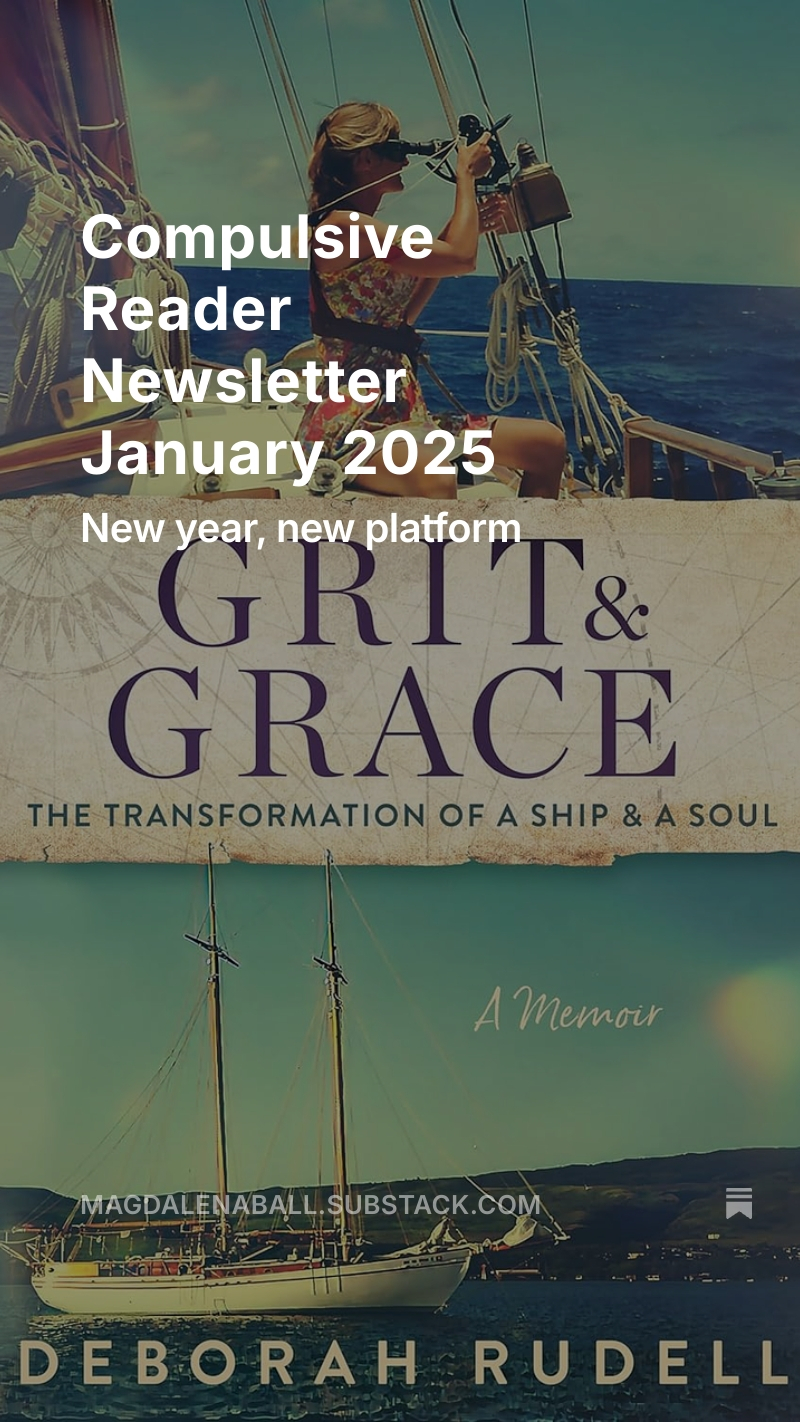Magdalena Ball
Book musings
Tuesday, December 31, 2024
CR Newsletter Jan: Moving to Substack
Saturday, November 30, 2024
Compulsive Reader Newsletter December
https://compulsivereader.com/sendpress/email/?sid=MA&eid=MjY0Mzc
If you aren't a subscriber, visit: http://www.compulsivereader.com and you can subscribe directly. Happy reading!
Image: Books in HCRO Dorm Library" by C G-K is licensed under CC BY 2.0
Thursday, October 31, 2024
Compulsive Reader Newsletter November
The November Compulsive Reader newsletter has just gone out and is making its way to inboxes around the world right now. This month we have double the usual number of reviews and interviews (trying to get on top of the backlog) and a whole bunch of exciting global literary news including such things as the T.S. Eliot Prize, the Cundill History Prize, the Nobel Prize, the Giller Prize, the Wallace Stevens Award, the Patrick White, and the National Translation Awards in Poetry and Prose to name just a few. Of course we all have our monthly giveaways. If you haven't gotten it, want to check it out, or can't wait, visit: the online archive. To sign up, visit: http://www.compulsivereader.com.
Monday, September 30, 2024
Compulsive Reader Newsletter - October 2024
Image: Abhi Sharma from India, CC BY 2.0 <https://creativecommons.org/licenses/by/2.0>, via Wikimedia Commons
Saturday, August 31, 2024
Compulsive Reader Newsletter - Sept 24
The Sept Compulsive Reader newsletter is on its way to readers around the world. This month has the usual big literary news roundup as well as new interviews from Anne Elezabeth Pluto, Ruth Oskolkoff, and our feature podcast, Sarah Temporal (you can go straight to that one here: https://podcasters.spotify.com/pod/show/compulsivereader/episodes/Sarah-Temporal-on-Tight-Bindings-e2nmqbd
We also have loads of new reviews and two terrific new giveaways.
If you can't wait for the newsletter to arrive (they go out in slow bursts), you can always: view it in your browser and if you aren't getting the newsletter please make sure to whitelist us. To sign up for the free newsletter visit: http://www.compulsivereader.com (upper right hand side). Happy reading!
"May 2014 Books" by The Marmot is licensed under CC BY 2.0.



.jpg)


